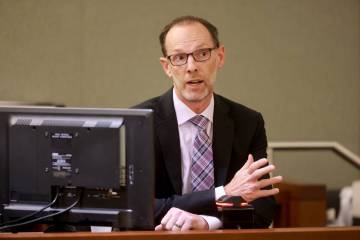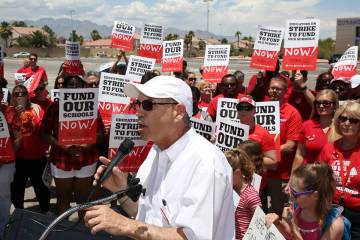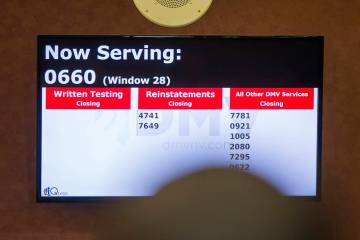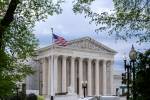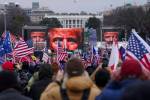EDITORIAL: Court serves notice to dual-serving lawmakers
After decades of turning a blind eye to the issue, the Nevada Supreme Court last week acknowledged that the concerns raised regarding government workers serving in the Legislature deserve serious consideration. That’s welcome news and long overdue.
In a decision released Thursday, the justices unanimously agreed to allow a Las Vegas think tank to challenge the legality of public employees moonlighting as state lawmakers. A District Court judge previously dismissed the filing, holding that the Nevada Public Policy Research Institute lacked legal standing to bring the case. But the high court, recognizing the importance of the constitutional questions at play, conferred standing on the group so the challenge may proceed.
While this may appear to be an arcane legal debate, it is, in fact, a matter of great significance. The Nevada Constitution divides the state government into three branches — the executive, legislative and judicial — and proclaims that “no persons charged with the exercise of powers properly belonging to one of these departments shall exercise any functions, appertaining to either of the others, except in the cases expressly directed or permitted in this Constitution.”
The separation of powers clause recognizes that the deconsolidation of authority promotes democracy and liberty, while the opposite is a recipe for autocracy. “The accumulation of all powers, legislative, executive and judicial in the same hands, whether of one, a few, or many, and whether hereditary, self–appointed, or elective,” James Madison wrote in Federalist No. 51, “may justly be pronounced the very definition of tyranny.”
Yet for many years, the Legislature has consistently included numerous public employees, both Democrat and Republican. The original NPRI lawsuit named 13 members of the Assembly or Senate who also collected government checks in their primary jobs. For instance, Senate Majority Leader Nicole Cannizzaro was, until very recently, a prosecutor in the Clark County district attorney’s office, both making and enforcing laws. Before being elected to Congress, Dina Titus long served in Carson City even as she was working in the state university system, a part of the executive branch. The list goes on and on and extends back more than 40 years.
But while the “dual service issue” has been raised previously on numerous occasions, the justices conceded, “no court has addressed it on the merits for a variety of reasons.” In granting NPRI standing, the court recognized the vital principles at stake and the necessity of an eventual judicial interpretation of the constitutional clause in question. A judiciary that continues to ignore the matter would promote “serious public injury,” the justices wrote, “either by the continued allegedly unlawful service of the above-named officials, or by the refusal of qualified persons to run for office for fear of acting unconstitutionally.”
The tenor of Thursday’s decision — which notes that “this court has recognized separation of powers as ‘probably the most important single principle of government declaring and guaranteeing the liberties of the people’ ” — does not bode well for defenders of dual service. Neither does the clear language of the separation of powers clause. Attorneys for the offending lawmakers have disingenuously argued that the prohibition applies only to high-ranking government officials such as agency heads and the like. But no such distinction is evident in the plain wording of the constitution.
We’ll know soon enough how seriously the justices are about acknowledging the importance of the separation of powers clause. While the now-revived NPRI lawsuit will take years to wind through the courts, the justices in September heard a related matter in an appeal of a District Court judge’s decision to vacate a drunken driving conviction because the Clark County prosecutor involved, Melanie Scheible, is also a state senator.
The justices have yet to release a decision in that case. But if the “most important single principle of government” is to remain alive and well in Nevada, the just outcome should be obvious.





